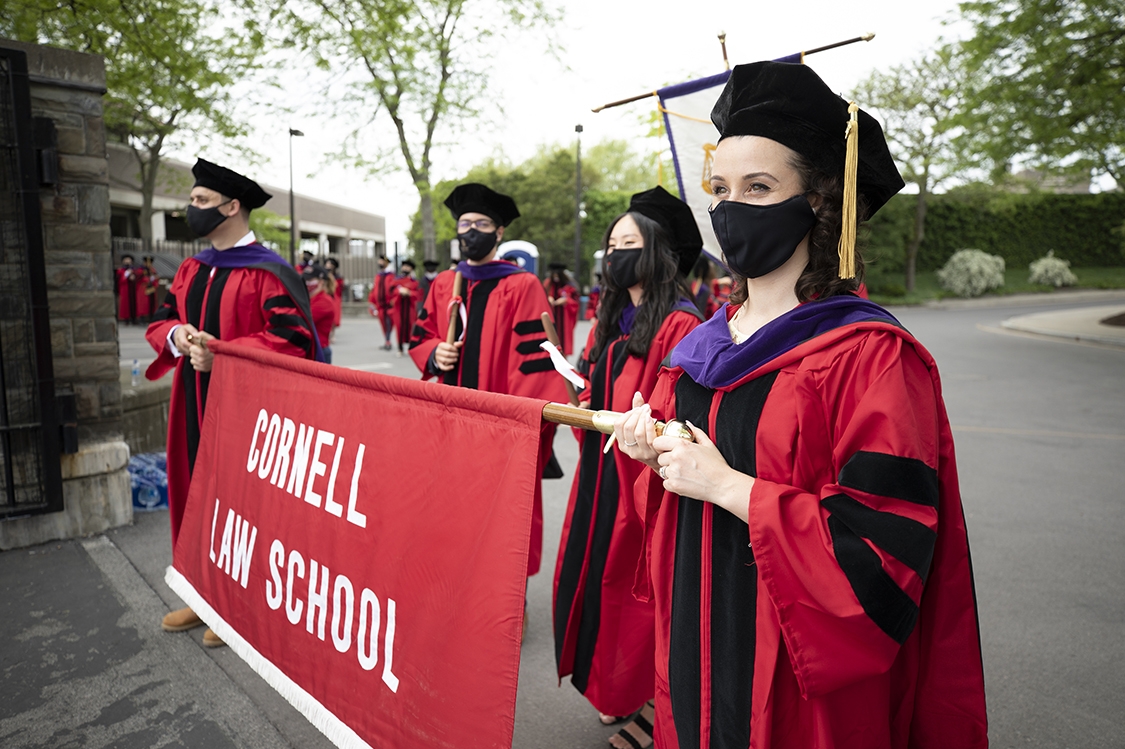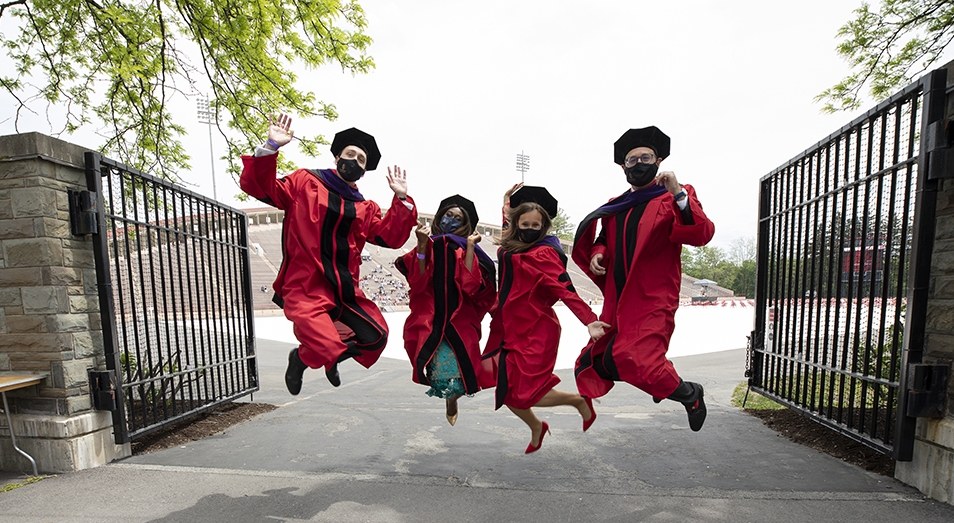This website uses cookies
We use cookies to ensure that we give you the best experience on our website. If you continue to use this site we will assume that you are happy with it.

On May 22, the Cornell Law School class of 2021 met at Schoellkopf Field for its final convocation. Interim dean Jens David Ohlin welcomed graduates and guests to the socially distanced ceremony, the first major, in-person event for the Law School in more than a year and half.
Ohlin lauded the graduates for their “remarkable flexibility, ingenuity, and tenacity,” and he emphasized that, through a period of hardships and upheaval, they had enjoyed and would continue to enjoy (in the words of Dr. Craig Smith of New York Presbyterian, written during the height of the pandemic) “the rapture of action”: the pleasure and privilege of having an active role to play.
J.D. speaker Eirene Haeyeon Kim honored the good work she had witnessed from the class of 2021, including saving tenants from eviction during the pandemic, fighting for the truth about COVID-19 statistics, defending people from persecution, and advocating for clients on death row. She acknowledged the sacrifices of her immigrant grandparents and parents and told the families of the graduates, “I know that your work helped all of us get to where we are today.”
LL.M. speaker Chawisa Laicharoenwat reminded her classmates that, while they may be preoccupied with their next steps, they should also take time to enjoy and celebrate the little things, “like when we got accepted into Cornell, or like when we made our first friend here, or like when we were done with our last exam and could finally put down our coffee pot.” She urged her fellow graduates to be proud and follow their passions.
“I’m going to ask a small favor of each and every one of you,” began faculty speaker John Blume, the Samuel F. Leibowitz Professor of Trial Techniques and director of the Cornell Death Penalty Project. “I want you to promise to change the world.”
Blume asked the graduates to repeat that promise, and then he explained the three things they we would need to do to fulfill it: 1) have hope, 2) imagine justice you can’t yet see, and 3) spend time with those who have been marginalized.
He acknowledged that they would face crises in this endeavor, and he recalled his own: the winter of 1998–1999, when the state of South Carolina executed six men of color, five of them clients of the Death Penalty Clinic. The episode left him bitter and riddled with self-doubt, he said, but then the state supreme court, troubled by the wave of executions, began to change course, as did courts at the federal level, initiating two decades of progress for those who face the death penalty and their advocates—opening a path to justice that could once only be imagined.
He concluded, “Now go and take your place in the world. And remember that, to whom much has been given, much is expected, and that right here, on this twenty-second day of May, in this stadium, you all promised to change the world. And I know you will.”
